Electronic Care Management (ECM)
Electronic Care Management (ECM) refers to the use of digital technology to manage and coordinate care services for individuals. By leveraging electronic care planning systems and digital social care records, ECM supports person-centred care, enhancing the quality and efficiency of care services.
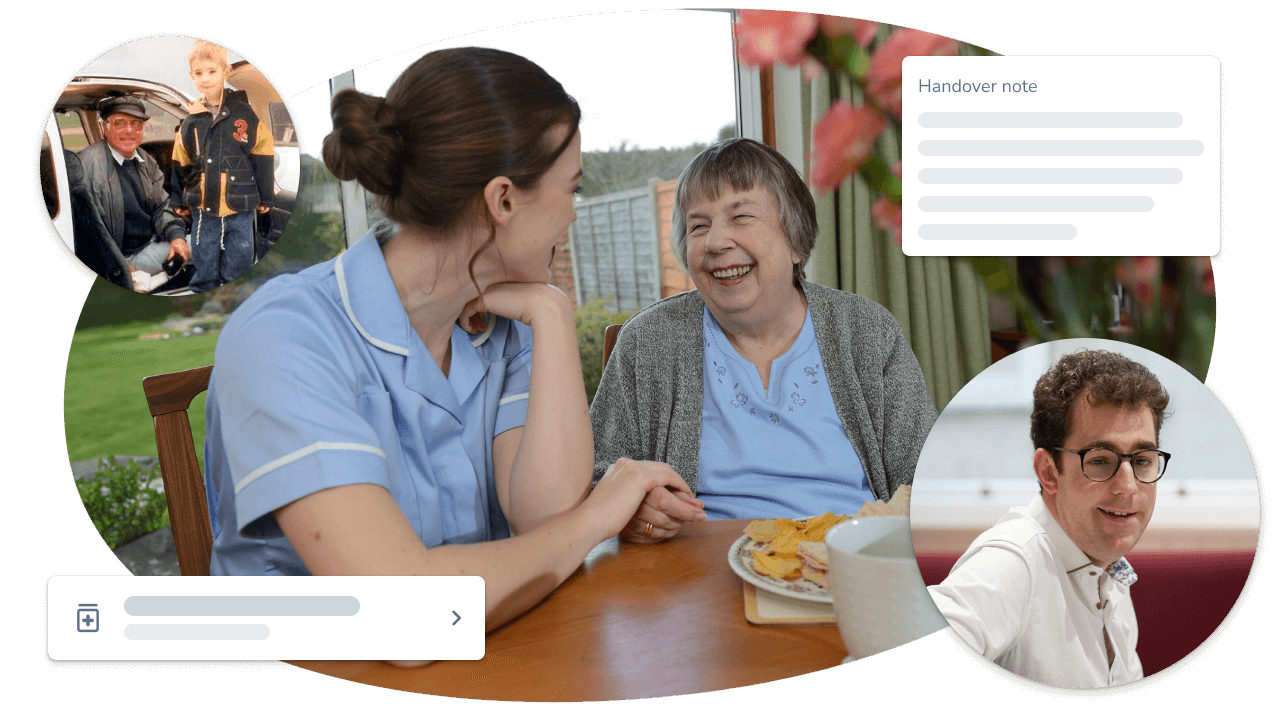
What is electronic care planning?
Traditionally care was organised and records kept using paper-based care plans and notes. Digital care planning transforms these into accessible electronic files and can be combined with other data about the service user, the carer and more in a single ECM system.
ECM for home care agencies
With governmental support and leadership urging home care providers to embrace digitalisation, it is somewhat astonishing that there are still numerous late adopters of work life changing and, certainly in some cases, life-saving ECM tools.
Developing a comprehensive ECM strategy is crucial for home care agencies to ensure a successful digital transformation, including conducting a content audit and defining priorities before implementing an ECM platform.
This technology facilitates rapid exchanges of vital information between care and medical teams, and the digitalisation of care is supported by both technology partners and government initiatives.
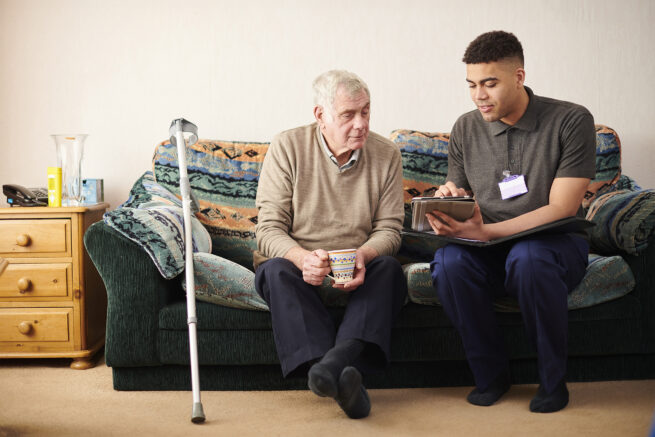
Benefits of technology in care planning
The use of technology in care planning has numerous benefits with Digital Social Care Records enabling users to effortlessly share information securely and decreasing the time dedicated to administrative duties. One key benefit is improved efficiency and stakeholder satisfaction. Digital care planning also helps reduce costs by streamlining administrative processes. This enhances the safety and reliability of records management, enabling services to deliver truly person-centred care.
Paper records had to be manually duplicated, requiring physical storage in both offices and service users’ homes. Document management inefficiencies led to wasted time and effort. With digital transformation, carers can now access schedules and input notes instantly, improving workflow management and providing easy access to information.
The software must have an extensive care planning feature that is person centric and can collect data which gives a holistic picture of the client. CareLineLive has sixteen assessments which give users the opportunity to add comprehensive information relating to all aspects of a person’s life and daily living activities. For example users will capture a raft of information in our personal care assessment which covers everything from bathing and showering to oral care, whilst our skin integrity assessment gives users the opportunity to risk assess for potential malnutrition and pressure areas through the use of the scored assessment feature.
Electronic care planning features
The ECM software must have an extensive care planning feature that is person centric and can collect data which gives a holistic picture of the client. CareLineLive has sixteen assessments which give users the opportunity to add comprehensive structured content relating to all aspects of a person’s life and daily living activities.
See the list of care planning features that CareLineLive offers:
About Me (PRSB)
This assessment is specific to the Professional Records Standards Body
About Me
CareLineLive’s assessment – an alternative to the PRSB option
Communication
Conditions and needs
Continence management
Environmental, health and safety
Escorted outings
Fluids and nutrition
Infection prevention and control
Lone working
Medication management
Mental health
Mobility, moving and handling
Personal care
Skin integrity
Social and emotional well-being
Scored assessments
Braden Scale
MST (Malnutrition Screening Tool)
MUST (Malnutrition Universal Screening Tool)
Waterlow Score
These help ensure better outcomes and improved customer satisfaction through proactive, data-driven planning.
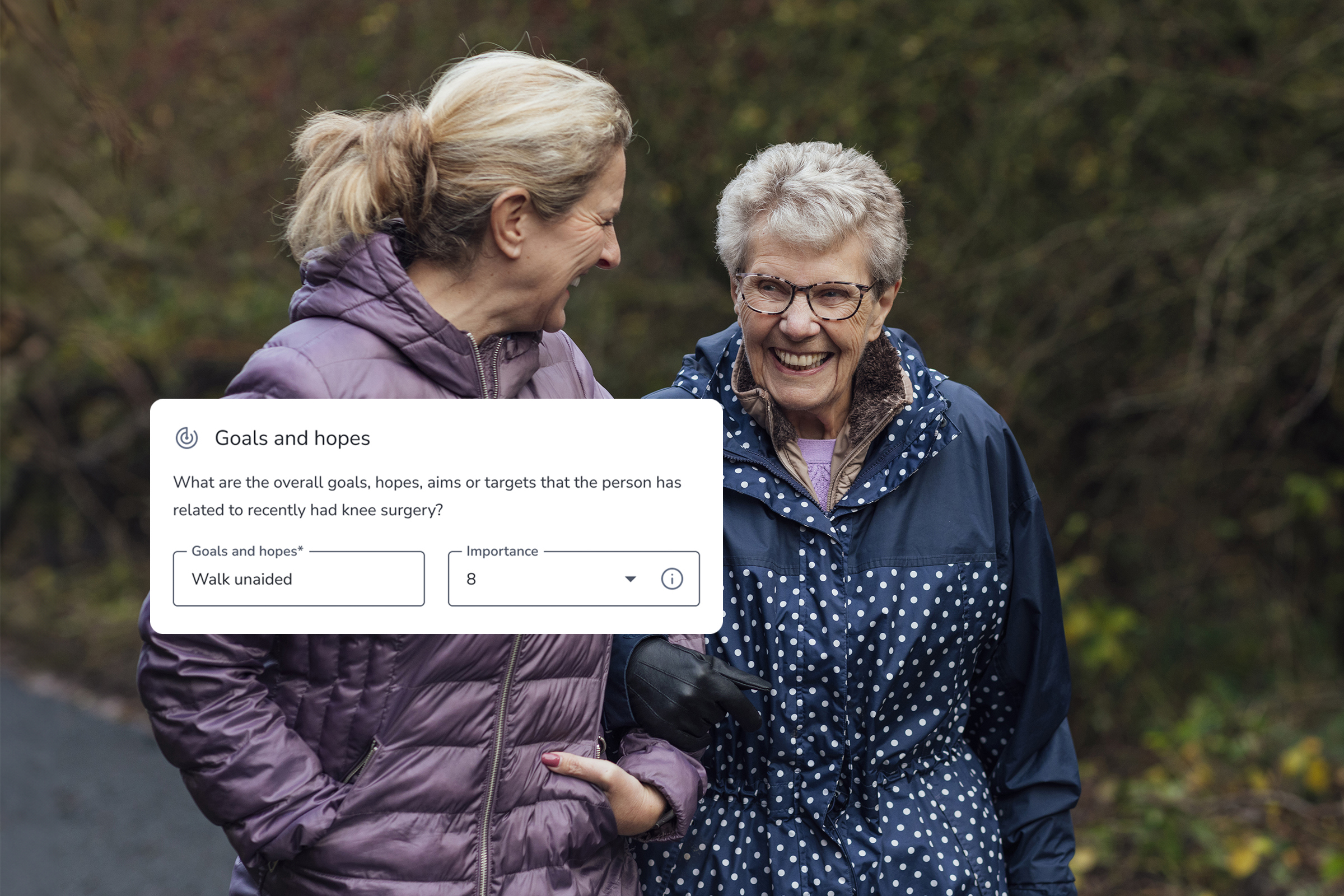
Goals and outcomes planning
It’s crucial to provide support for individuals in achieving their agreed goals and documenting them through the care planning process. This empowers users to establish carer tasks that aid in accomplishing client objectives. This feature significantly contributes to breaking down ultimate goals into smaller, achievable milestones. The availability of this information around the clock enables real-time tracking and adjustment of goals, with regular reviews and timely notifications to managers about any changes and review schedules.
Improved information access ensures that all relevant data is readily available, supporting better business decisions in care planning and enabling more informed decision-making at every stage.
Changing needs kept updated by digital care plans
Attention to detail is critical, and ongoing support is often needed as needs shift rapidly. Digital care planning enables a detailed audit trail using version control, where updates are timestamped, improving compliance and transparency in the management system.
Electronically assisted reviews
Paper-based review systems were inefficient and made it easy for care workers to miss updates. With a digital asset management system, you can schedule and automate review processes, customer service calls, feedback sessions and business process updates. Managers receive real-time reminders to maintain regulatory compliance.
Safety enhanced with electronic care planning
Ensuring service safety means actively assessing risks and recording incidents, concerns and complaints. Digital, person-centred care planning supports collaboration and delivers better outcomes through actionable insights and continuous service improvement.
CareLineLive’s Concern and Incident reporting feature enables transparent documentation of investigations and resolutions, reinforcing a safe, effective and well-led service. It also helps capture lessons learned and adapt care to meet the evolving needs of both service users and staff.

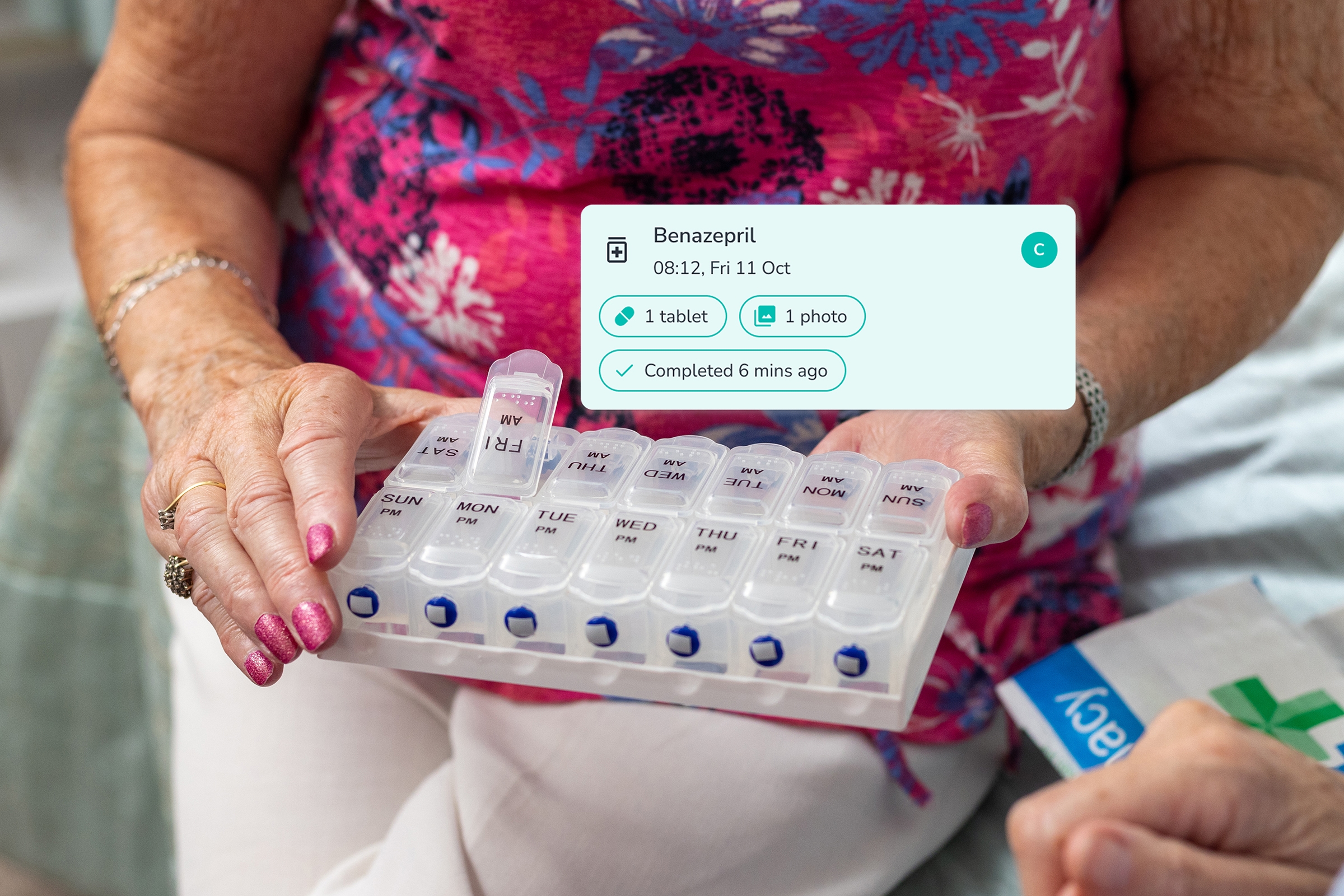
Electronic medication management (eMAR) as part of ECM
Shifting to electronic medication management streamlines care by making records instantly accessible at each visit. CareLineLive’s eMAR system supports task tracking, reduces errors and improves safety with real-time alerts and electronic signatures.
Via the Carer Companion app, carers log dosages, outcomes, photos and comments to keep teams updated. Remote audits replace manual checks, with all electronic records stored in one searchable, centralised ECM system.
Carer apps
Csarer apps play a crucial role in facilitating real-time information flow, ensuring that all stakeholders have the necessary data for informed decision-making. CareLineLive’s Carer Companion app empowers carers to document a wide range of observations, including blood glucose levels, pressure areas, meals and fluids intake, heart rate, catheter output, bowel movements, and concerns and injuries. Carers can utilise body maps while managers can monitor them and refer to medical professionals as required.
Handover notes are prepared to provide incoming carers with comprehensive visit-specific details. Simultaneously, check-out notes offer a concise summary of visit event ensuring both the office and loved ones stay informed. In cases where task completions require documentation, observations and notes; any concerns raised enable care managers to take necessary action effectively.
Completion statuses trigger alerts, with updates immediately accessible to managers through the Management Portal. Stakeholders can promptly access vital information via the Care Circle Portal for timely intervention if and when needed. Visual data representation enables efficient reconciliation for auditing purposes and trend analysis insights.
Electronic sharing of information
Information features that are accessible to stakeholders such as family and health professionals giving detailed information on a client are a real bonus. The information available to view, can be comprehensive including, client details, next of kin contact information, medical history, visit records, prescribed medication, and more.
CareLineLive’s Care Circle is an excellent example of controlled access through role assignments within the Portal. This feature enables temporary instant access to emergency services, providing immediate viewing of up-to-date client records for prompt and appropriate treatment. Access requires identity verification, and notifications are promptly sent to Care Circle members upon authorisation.
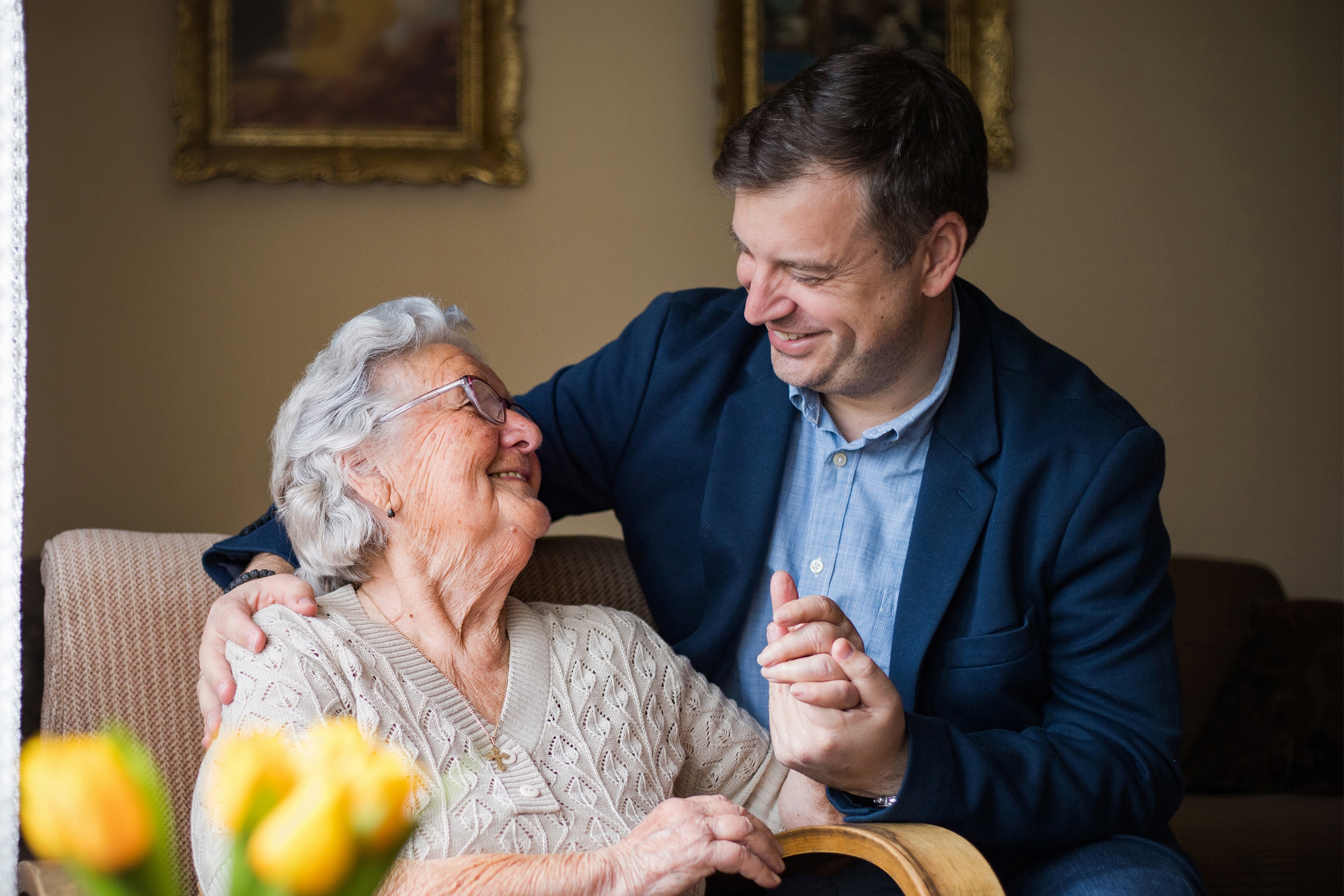

Electronic transformation of care planning
It’s clear that the importance of digitalisation in care planning is transformative across the industry, with a strong emphasises on improving efficiency, safety and client outcomes. Intelligent information management is a key component of modern ECM systems, enabling organisations to capture, manage, store, preserve, and deliver information effectively.
The detailed breakdown of the features offered by CareLineLive demonstrates how technology can facilitate person-centred care, streamline administrative tasks, and ensure compliance with regulations. From comprehensive assessments to medication management and remote audits, each aspect contributes to enhancing the quality of care provided.
Moreover, the inclusion of carer apps and the Care Circle Portal underscores the importance of real-time information exchange among stakeholders, fostering transparency, collaboration, and trust.
For more information on how CareLineLive can transform every part of your home care business see: Our Solution | CareLineLive